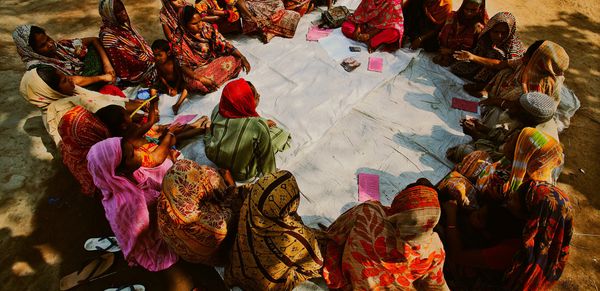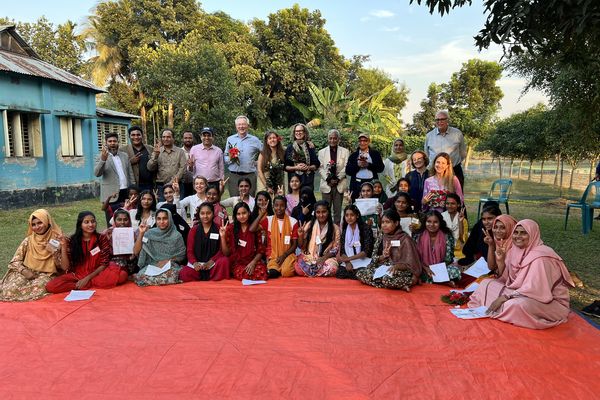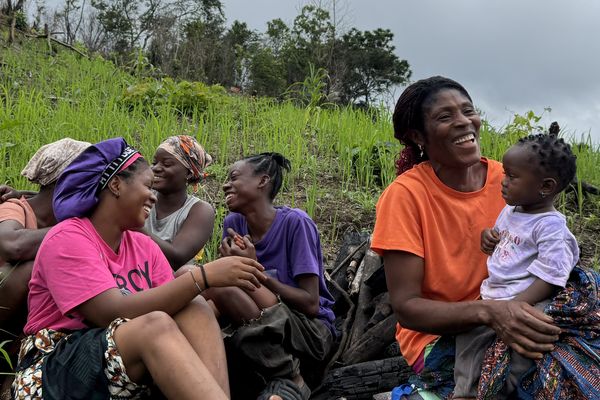This is an edited version of the interview originally published by Globalnyt. To read the original article in Danish click here.
Globalnyt: Can you share your experience transitioning into the development sector and the role BRAC has played in your career?
Asif Saleh: I grew up in Bangladesh and later worked at Goldman Sachs in the United States. In 2009, I came back home. Now, almost 16 years later, I can confidently say that there has not been a single moment of regret about coming back to my country. Of these 16 years, I have been a part of the BRAC family for 14. Being part of BRAC has been more than just a job; it has been a mission to contribute to the lives of millions in Bangladesh and beyond.
Globalnyt: What does it mean to be a large NGO from the global south?
Asif Saleh: Being a development organisation rooted in the global south, we view challenges through a different lens.
Unlike traditional models shaped by the global north which are characterised by power dynamics and a ‘this-is-how-it-has-to-be-done’ mentality, we focus on sustainable practices that support communities,
know how to work with limited resources, and do not rely on fancy solutions that are not scalable. At BRAC, we focus on building the capacity of local communities so that they can determine their priorities and sustain themselves. Our programmes are designed in collaboration with local actors, ensuring they are grounded in a rich understanding of their reality. This collaborative and inclusive approach is what sets us apart.
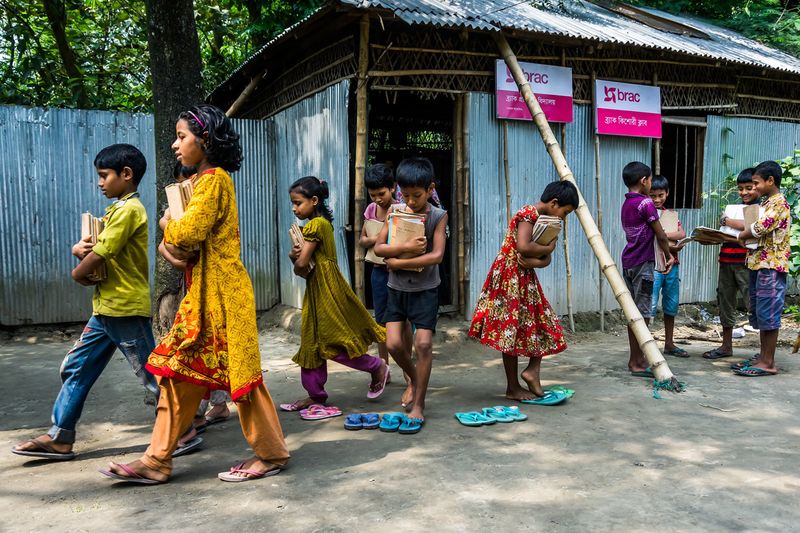
Students heading home after finishing their classes for the day at a BRAC school in Bangladesh. To date, over 14 million students have graduated from BRAC schools in Bangladesh. © BRAC 2014
Unfortunately, development organisations from the south do not play a significant decision-making role in global conversations, thereby limiting their access to donors and funds. Not only does it make scaling our solutions more challenging, it also delays reaching a common ground between the global south and north. For example, donors from the north often say that capacity must be built, but fail to understand that capacity cannot be built when very limited funding is available. As a result, development organisations from the south become subcontractors for development organisations of the north. These subcontractors have no authority and often have to operate with margins that barely cover their costs – not to mention capacity building.
Development should focus on long-term solutions rather than short-term projects, and these solutions need funding for them to be scalable and sustainable. However, many donors believe that organisations in the global south are risky business partners, creating a self-reinforcing chicken-and-egg situation. Donors from the north do not provide funds because partners from the south lack capacity that cannot be built due to a lack of funds. Although there has been talk of local anchoring for a long time, little progress has been made with this very paradox.
There is a need to change this view of risk. BRAC has launched an initiative with USAID where we will manage the fund and support local work. Organisations can apply to work in different sectors and we will work with them to build capacity. The goal is that organisations in the global south will, in the future, be seen as less risky by the west.
The way development is done must change so that organisations closer to the problem are given more space.
Globalnyt: How does BRAC’s Ultra-Poor Graduation programme address the needs of communities in marginalised conditions and help them out of extreme poverty?
Asif Saleh: Our Ultra-Poor Graduation programme is a two-year sequenced programme focusing on supporting people and households living in poverty to foster a sustainable livelihood and socioeconomic resilience. At the end of the two-year graduation programme, we have different indicators that participants must meet in order to ‘Graduate’. Since its inception in 2002, the programme has helped nearly 2.3 million families in Bangladesh out of extreme poverty. Now, similar programmes are used by various organisations in approximately 50 countries.
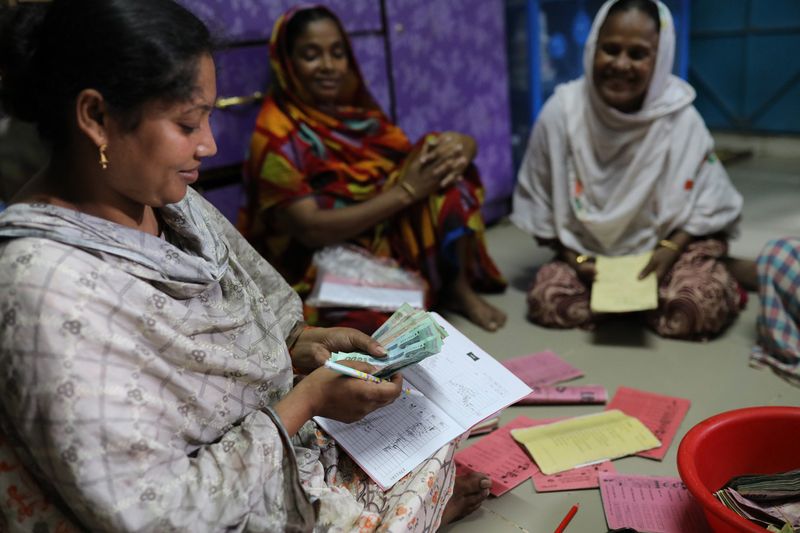
BRAC Microfinance participants attending a village meeting in Manikganj, Dhaka, Bangladesh. © BRAC 2018
Globalnyt: BRAC offers microfinance in almost all the countries where the organisation is present – short-term loans that provide customers living in vulnerable conditions with access to financial services. How does BRAC ensure the financial well-being of its customers if they cannot repay the loans?
Asif Saleh: Some people criticise microfinance, saying that the interest rates are higher than formal banks, and question if it is really beneficial. This criticism often comes from people who have access to banks and do not need microfinance. However, there are many people that banks do not want as customers, because they are seen as risky.
Borrowers need to be able to save and have access to credit, in case they run out of money. At the same time, they may also need money for their businesses, or to save up for the long term. Our microfinance programme offers these services, with a risk assessment which is different from banks. And yes, a very small group may sometimes not be able to pay back loans. If this happens, customers are typically given three years to postpone repayments. We also support people to ensure they can reschedule payments, especially through disasters, where we spend a lot of resources renegotiating loans so that customers have more time to pay them off.
We work with the participants and align ourselves to what they need. For example, recently there was a flood in Bangladesh, where we not only stopped collection, but also wrote off a large part of the loans as we assumed people would not be able to repay. Such an approach ensures that microfinance remains not just a financial service but a lifeline for those excluded by traditional systems, helping them recover and rebuild in the face of adversity.
This is an edited version of the interview originally published by Globalnyt. To read the original article in Danish click here.
